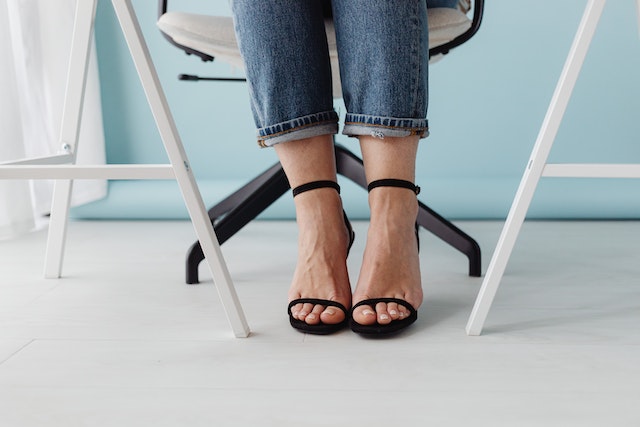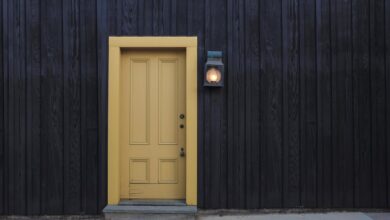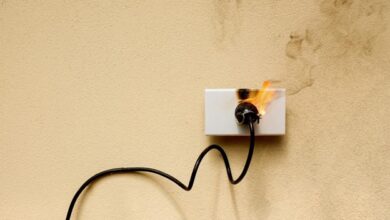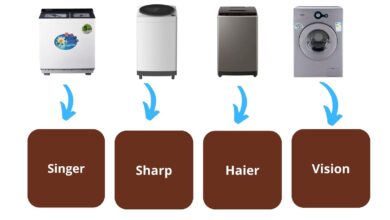8 Considerable Disadvantages of Epoxy Flooring
Yes, these are the things you must take into account before going for epoxy flooring!

Flooring has the capacity to transform the entire look of your interior. Using epoxy resin on the floor for its interesting patterns and sheen has garnered a lot of popularity in recent times. Yet, a number of disadvantages of epoxy flooring can certainly make you think once more before making your final decision.
Let’s consider what can, or does go wrong with epoxy flooring.
What Exactly Is Epoxy Flooring?
Epoxy resin is a polyepoxide and belongs to a group of pre-polymers and polymers that have high bonding strength and adhesive quality to them.
The resin polymer or epoxy resin is mixed with a hardener in a certain proportion with which it reacts chemically to create intermolecular bonds.
Pouring the resin into consecutive layers makes the surface even harder and stronger. It requires a warm climate to fully set and harden, but it begins to jellify with temperatures above 16 C.
In addition to the warmth, it also does not like humidity or suspended particulate matter in the room where it is required to cure as it may trap the particles in it forever.
With humidity, the resin may form bubbles or react to moisture in a way to give it a cloudy look upon hardening.
Disadvantages of Epoxy Flooring
1. Chemical Fumes
Since resin is a polymer, essentially a chemical, it gives out strong fumes once it is spread and left to cure.
Inhaling these fumes can lead to respiratory tract disorders and can adversely affect the lungs. Long exposure may also cause asthma, allergy, and other respiratory problems.
2. Dermatitis & Sensitization
If you handle the resin without protective equipment such as gloves and masks, it can be very detrimental to your health.
Handling the resin with your bare hands can cause blisters and irritation, which is known as dermatitis. Elongated exposure to the resin may lead to serious skin diseases such as eczema.
On the other hand, inhaling the fumes from the resin for an elongated period of time can cause a condition known as sensitization which may flare up or get triggered with the slightest exposure to the site. The even worse piece of news is that there are no treatments or cures available for this condition.
3. Contact Noise
The resinous floor is hard so every time you walk on it, it will have a loud contact noise. Make sure to use it only if the constant click-clack does not bother you.
4. Heating Issue
The floor may not heat well and remain cold during the winters if it doesn’t have underfloor flooring, just like natural stone or tiled floors.
5. Temporariness
Even though the epoxy flooring is sturdy and lasting, it is not a permanent solution. Everyday use and too much traffic will take a toll on it and after a certain amount of time, you may need to replace it.
6. Tedious Installation
You should take into account this disadvantages of epoxy flooring before going for it. Because the installation process for the epoxy resin floor is rather tedious and can wear you out. It requires patience, a lot of time, and dexterity.
The concrete floor or wooden surface beneath will require to be thoroughly cleaned multiple times. The floor has to be leveled and cleaned with harsh substances such as muriatic acid, which again is harmful to us.
There may be ripples or unevenness in the final product if the surface below is bumpy and lacks smoothness.
It also takes a lot of time to cure and dry out between reapplication and layering. Unfavorable weather conditions can be detrimental to the final effect.
7. Tiresome Removal Process
The resinous floor is very hard to remove once installed. It requires special tools and techniques to rip it off and for that, you will need to call in professional help which will cost quite a bit.
8. Slipperiness
The resinous floor can be very slippery and invite accidents if the chances of water or oil spillage on it are high.
To avoid this, you will need to add additives such as silica sand, shark grip, or aluminum oxide to the top layer of the resin which increases the overall cost.
You will also need to use non-skid rugs and runners to avoid slippage.
Notable Advantages of Epoxy Flooring
Despite the disadvantages of epoxy flooring, epoxy remains a go-to choice for flooring for many of us. Let us explore some of the reasons that make it so popular:
1. Durability
Epoxy is one of those flooring options that will stand the test of time for you. Once you have it installed, it will last you forever and will continue to look good through the years if maintained properly.
It does not degrade even if you store heavy machinery and equipment on top of it and strengthens the capacity of the floor to carry heavy loads. Only extremely sharp and high-velocity objects can puncture it, but that will not be the case if you use it in your interiors.
It doesn’t show cracks or scratches with usage which is a huge advantage of epoxy flooring. It will also not peel or crack like laminated or wooden floors.
Epoxy flooring is also resistant to fire, chemical erosions, and other hazards. It will, therefore, require very few to no repairs over time.
2. Cost Effective
Cost-effectiveness can hide all minor disadvantages of epoxy flooring and make it a great decision considering other benefits.
Laying on epoxy flooring in your space is way cheaper than many materials available in the flooring market, such as marbles, or other natural stone, hardwood, et cetera.
You may read: Colors that go with yellow and black
It is feasible, pocket-friendly, and can be used artistically to create interesting patterns. You can even lay the flooring yourself and save up on the expense, instead of bringing in professional help.
It can be poured on top of the existing floor surface, wood or concrete.
3. Sturdy against Rough Weather
Your epoxy floor can withstand extreme weather conditions and show no signs of damage.
It does well in negative temperatures as well as temperatures as high as 50C or so. It also does not crack with fluctuations in temperature.
4. Aesthetic Appeal
Aesthetically, epoxy resin can transform the look of your space dramatically. It can be mixed with a variety of colors and poured into different patterns.
It has a gloss and sheen that can brighten up the space in which you decide to lay resinous flooring.
Final Words on Epoxy Flooring
The purpose of this article is not to demotivate you by showing the disadvantages of epoxy flooring.
Rather, we have tried to highlight the cons alongside the pros to help you weigh your options properly and make an informed decision. If you are careful about some of the areas including the chemical fumes, sensitization, dermatitis, etc., then, you can go for epoxy flooring without thinking much.




